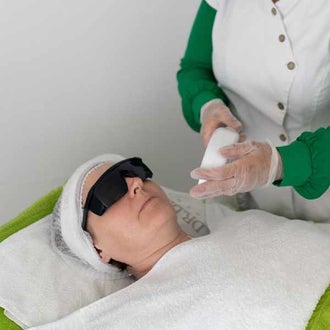Sara from Longueville asked:
I heard that you can get cancer from the radiation involved in undergoing laser hair removal. Is this true or just a myth?"
Laser therapy uses non-ionising radiation in the form of a concentrated light source that produces a very fine laser beam. The laser beam is used to kill hair follicles, resulting in the loss of hair growth from those follicles.
Laser therapy uses different ultraviolet (UV) wavelengths to those found in sunlight (UVA/ UVB) or ionising radiation (nuclear radiation/ x-rays), which are both known to damage cells and cause skin cancer.
Non-ionising radiation is safe. This means, for most, laser hair removal is safe.
Long-term effects of laser therapy, including the possibility of an increased risk of cancer, have not been studied. However, laser therapy is also safely used for:
- Other cosmetic purposes such as tattoo removal
- Dental procedures
- Treating varicose veins
- Prostate, skin and eye surgery
- Removing kidney stones
- Treating cancer, including skin cancer
Some researchers have observed changes in atypical moles (dysplastic nevi) after laser hair removal. Therefore, they suggest caution in the use of cosmetic laser therapy for people with a personal or family history of skin cancer or atypical moles. However, for most, laser hair removal is safe.
Remember, it is important to research all beauty treatments, such as nail art, before proceeding.
Our iHeard articles are evidence-based and we use an array of language to bring meaning to each topic. For example, in this article we use the word 'safe', this is not seen as a scientific word and therefore warrants some explanation. Discover what we mean by the word 'safe'.
iHeard hub
Thank you for joining the mission against misinformation
If you’ve heard a rumour about cancer, or are unsure about information you’ve read online, ask your own cancer question via the iHeard hub.
We want everyone to have the correct information about cancer so if you know anyone else with a cancer question, why not let them know about iHeard?
This article was last updated 22/09/2023.

